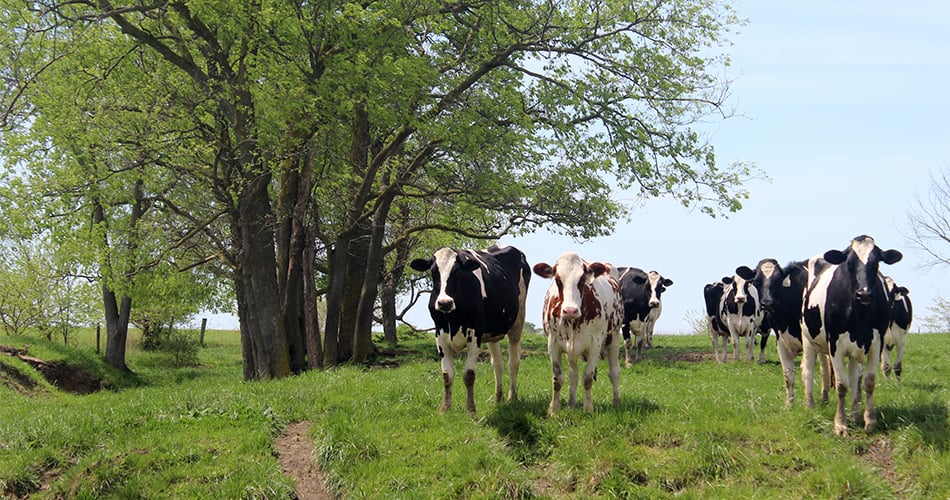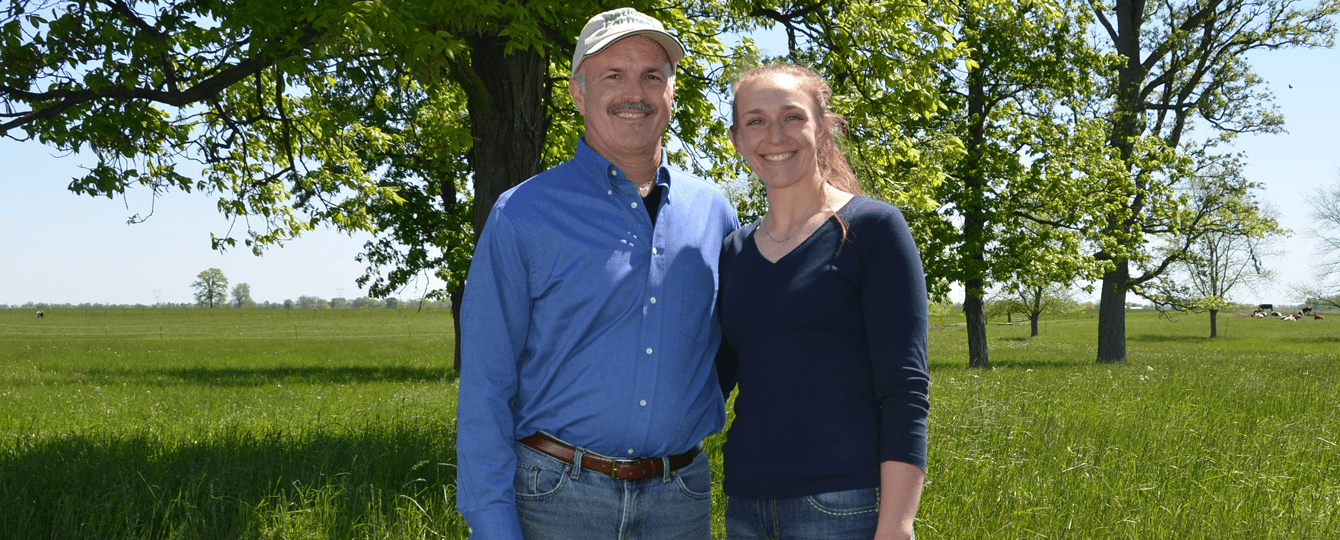The Conrad Family
Dairy farmers from New Holland, Ohio
Greg Conrad is a third-generation dairy farmer from Pickaway County. Together with his daughter Macy, they milk about 100 cows and farm 400 acres at Conrad Farm.
What’s it like working together as father and daughter?
Greg: I hate to say it, but we’re very much alike. I think that’s kind of the way I am with my dad too – we’re all kind of alike so it works. I try to give Macy as much space as possible without acting like the employer. I include her in decisions that we make, and I want her input. I don’t want to just tell her what to do. I know that isn’t going to work, if I’m just her boss.
Macy: There’s kind of an unspoken connection, and we just work well with each other. Growing up, I always admired how hard Dad worked, and I wanted to work just as hard, if not even harder than him. I also have a different perspective on things that could maybe help offer new ideas. My generation is, I think, more environmentally conscious, and we are seeing ways that sustainability could be brought into different aspects of the farm.
HEAR FROM THE FARMER
Hear father-daughter duo Greg and Macy explain what it’s like working together on their family’s dairy farm.
As a dairy farmer, what gets you out of bed in the morning?
Greg: If you’re a dairy farmer, you have to love cattle and the cycle of seeing them born, growing them, raising them, bringing them up to to join the milking herd, and then they provide us with wholesome milk. We take a lot of pride in what goes out of our farm too – our milk. We know it’s the most nutritious food that is out there, and we believe in it. We’re passionate about what we do and the product we produce.
Macy: Although the day to day tasks can be repetitive, the seasons always change, so there’s always exciting new work to be done with each season and each crop. There’s an opportunity to plant a new cover crop one year, maybe alternate between wheat and oats and rye, try something new just to keep it interesting. We’re always harvesting corn in the fall. We’re always doing hay in the summer, but that keeps it interesting, having a little bit of diversity and stuff on the farm. And the cows, of course. I love the cows.
What happens to the cow manure on your farm?
Macy: We collect all of the manure that our cows produce and store it properly so we don’t have any runoff. Once we have proper conditions, we spread that manure out onto our pasture fields and onto our crop fields. That manure is then put back into the soil, which puts nutrients into the ground. I feel good knowing that we are providing a sustainable source of nitrogen back to the soil while also disposing manure in a safe and environmentally friendly way.

Do cows know when it’s time to be milked and go out to the pasture?
Greg: Cows love to have a routine, and, once they get used to the routine, they have no problem repeating it. A day for them is they’re starting out getting milked, then at some point they’re let out into the pasture field. Most of them make their way out, no problem; they don’t have to be told where to go. As time goes by during the day, they may migrate their way back toward the gate. So typically, if they do have to be called back in, I can walk up there and give them a big call or say “C’mon, babe!” They have great hearing and can hear from a great distance. Typically, they will come running, and they know exactly what’s supposed to happen. They know to be up toward the gate, ready to come in before 5:00pm so they can get in there to get milked again.
Learn more about Macy or meet more Ohio and West Virginia dairy farmers.

